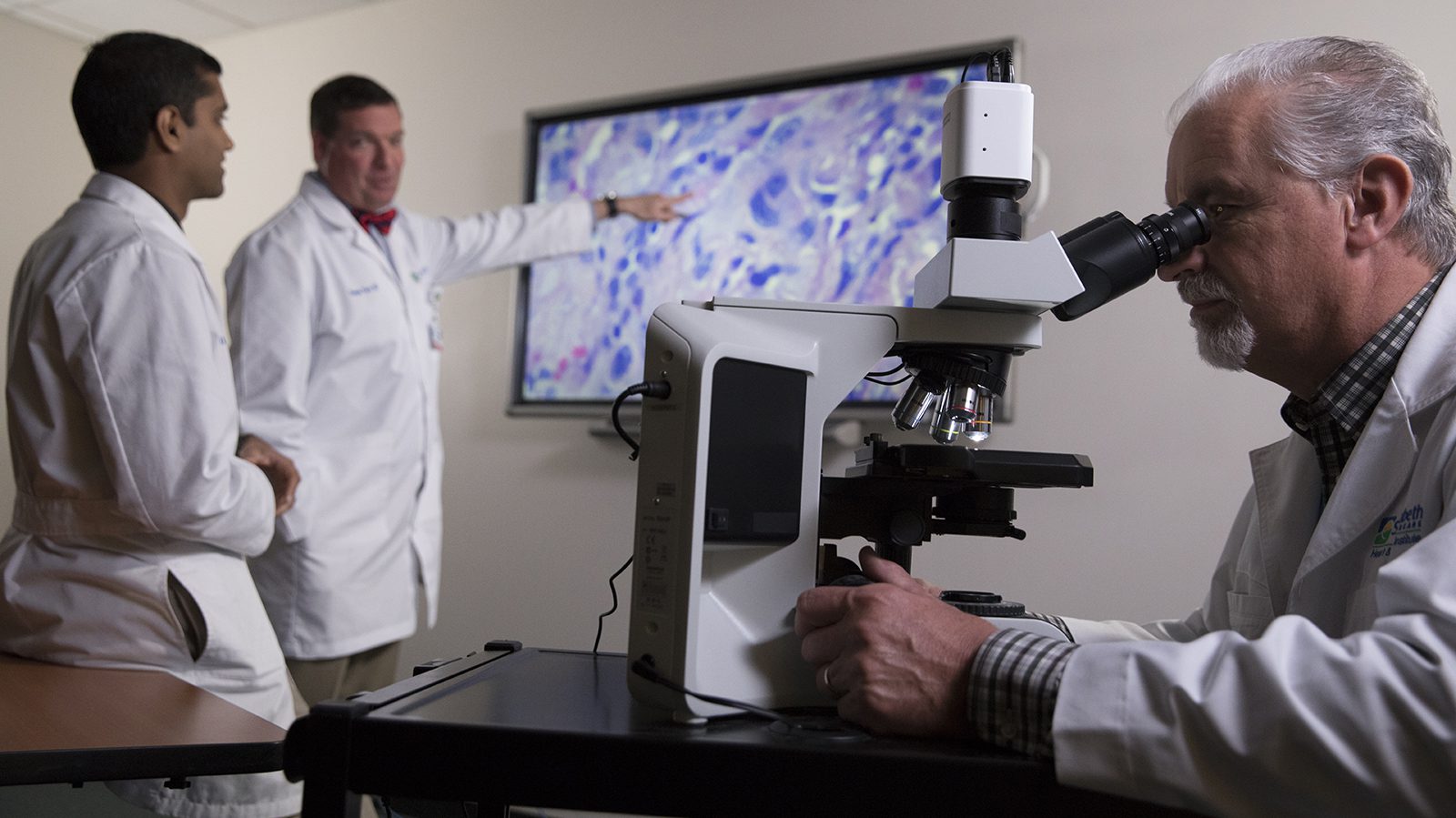Adrenal Cancer
Adrenal cancer occurs when abnormal cells develop in or travel to your adrenal glands and form a tumor. Your adrenal glands are small, triangular-shaped glands found at the top of each of your kidneys. They produce hormones that help regulate many of your body’s essential functions.
There are two main types of adrenal tumors:
If you have cancer in your adrenal glands but the disease originated in a different part of your body such as your lungs, kidneys, skin, breasts or stomach, it’s not considered an adrenal cortical carcinoma. Instead, it’s named and treated based on the location from which it began.
Causes of Adrenal Cancer
There is no known cause of adrenal cancer. Researchers are working to gain further insights into the disease and develop strategies for preventing its growth.
Risks Factors for Adrenal Cancer
Adrenal cancer happens most frequently in people who have an inherited condition that increases their cancer risk. These conditions include:
- Beckwith-Wiedemann syndrome
- Familial adenomatous polyposis (FAP)
- Li-Fraumeni syndrome
- Lynch syndrome
- Multiple endocrine neoplasia type 1 (MEN1)

Make an appointment
For more information, please contact your oncologist or the Cancer Care Center at (859) 301-4000.
Symptoms of Adrenal Cancer
The most common symptoms of adrenal cancer include:
- Abdominal bloating
- Depression
- Easy bruising
- Elevated blood sugar
- Fever
- Frequent urination
- High blood pressure
- Hormone changes
- Muscle weakness
- Vomiting
- Weight gain
Diagnosis of Adrenal Cancer
Diagnosis of adrenal cancer typically begins with a physical examination and review of your personal and family medical history.
Testing may include:
- Adrenal angiography.
- Blood and urine tests.
- Imaging tests including CT, MRI or PET scans.
- Removal and analysis of your adrenal gland.
Treating Adrenal Cancer
Treating adrenal cancer often requires surgery to remove the cancerous cells and tumors. Other treatments may be used to prevent cancer from coming back or if surgery is not an option for you.
Treatment may include:
Your Cancer Care Team
The team includes medical oncologists specializing in immunotherapy and precision medicine, surgical oncologists, radiation oncologists, interventional radiologists, thoracic surgeons, pain management specialists, genetic counselors, pathologists, nutritionists, pharmacists, nurses and support staff. They work together to create a treatment plan that’s just right for you.


